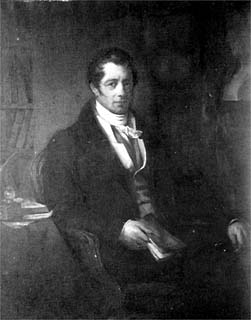
by Kevin Alfred Strom
THE FACT THAT the fetid “economic stimulus” nonsense that continuously emanates from the professional plunderers in Washington is accepted by intelligent people is disturbing to me.
The idea that politicians can actually give us “free” anything — especially “free money” — is a perennial fallacy that would be laughed out of elementary school if real economics were taught to our children, as it should be. The acceptance of that fallacy by the manipulated and ignorant mob will surely deprive us of our freedom — and our children of their rightful inheritance.
The antidote to ignorance is education. For any intelligent child who is approaching the age of reason and who has somehow learned to read well despite the best efforts of the modern “educators,” the great work of the French economist Jean-Baptiste Say, A Treatise on Political Economy, will provide the grounding in economics that he or she needs.
Thomas Jefferson admired Say greatly, writing in 1817: “In France, John Baptiste Say had the merit of producing a very superior work on the subject of Political Economy. His arrangement is luminous, ideas clear, style perspicuous, and the whole subject brought within half the volume of [Adam] Smith’s work. Add to this considerable advances in correctness and extension of principles.”
According to the Locke Institute, “Jefferson advised using Say’s Treatise on Political Economy at the University of Virginia. It was the seminal economics text in almost all the large number of new private universities in America. Say was dominant after the ‘late unfortunate unpleasantness between the States.’ Therefore American leaders were saved from Ricardianism, and were educated in market economics before Carl Menger and the Austrian Revolution.”
Reading Jean-Baptiste Say, as a friend of mine says, also trains the mind in logic — something all too rare these days, especially for young people whose feelings are manipulated daily by skillful media propagandists — and who are then are encouraged to make political decisions based on those feelings. A generation that had read and understood the works of Say would have been mentally inoculated against the economic and other blandishments of a Barack Hussein Fetchit.

Another Frenchman whose economic writings deserve a wider audience is Frédéric Bastiat, whose The Law is a classic of the philosophy of human liberty and economic good sense.
Some will object to these Frenchmen’s support for free trade. One might argue “Didn’t the tariff (which provided almost all the funds needed to run the federal government back when America was still America) protect our workers from slave labor competition and obviate any need for income taxes?” True. I think that Say and Bastiat are right about free trade within the commonwealth of Euro-folk, which is largely what they were talking about anyway. But I believe it is wrong to extend their ideas to allow “free trade” with the near-slave laborers of the Third World.
Economics, when properly understood, is not a dry subject at all. It is the story and science of human action and human freedom. Understanding it will greatly help you understand that most mysterious of Earth’s social species — the human being.
Television, the book section of the daily press, the major publishers, and libraries are all places where information must pass the scrutiny of a “gatekeeper” before you are allowed to see it. They are places where Jean-Baptiste Say and Frédéric Bastiat and Jefferson and Mencken and Oliver are crowded out by the likes of Philip Roth and Charles Krauthammer and George Soros.
But, so far, the Internet has no significant gatekeepers. The information revolution has made the works of the best minds of the West available again. Take advantage of the situation, for yourself and your children.
A Treatise on Political Economy
